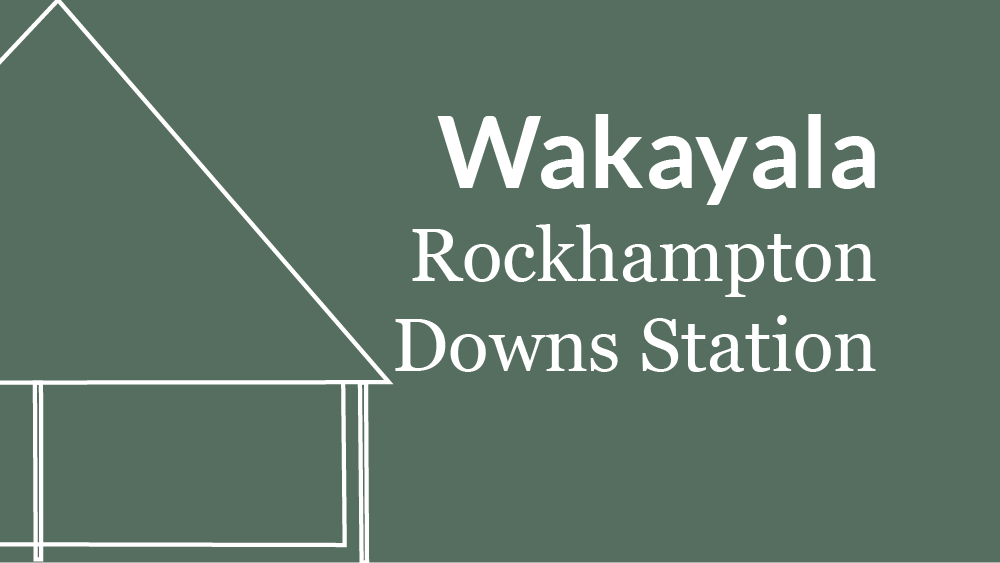Life at Rocky
When I first came I came with my dad in 1957. I was only about eleven, ten or eleven years old, and my dad got a job here working as a stockman. Maybe few years later when I was about fourteen or fifteen, I started to ride a horse. Go out to stock camp with other, with other old people and there was other my friend also. We used to go to stock camp, maybe six months or more, out bush, no shower. It was very hard in those days. But, big mob, big mob of Wumpurrarni people there. There was, there was only in those days, there was just one head stockman and a cook, and most of them was Wumpurrarni.
Yeah we'd go out with the other boys, yeah, and the head stockman was a papulanji, and the cook. We had Wumpurrarni cook too for us as well. It wasn't very easy for us. I remember this, sometime sooner or later we going to go out, and there was, that's an old camp south from this building. We had no water supply down there. We used to, we used to roll those big 44-gallon drums to where the bore is now, but there was a dam. Before the, before the tanks, was a dam. And we used to fill them up full of water and we have to roll them back, roll them back for the old people down there, all the way. Maybe two drums. But when time come for rain, he fill those kilkayi up, and they used to make us go and roll the drum down to the kilkayi, get a fresh water, fresh rainwater, and until round about '65 or '64 that dam you can see it from there that's a rain water dam. Until they built that one up, and when he's rain, used to rainwater there and we still had no water supply, so old people used to make us roll the drum down there then. Fill that up and roll it back to the camp.
There was a very big Wumpurrarni camp. There was about five houses was there, and other people just had a this one, just a humpy and tin houses. Until round about '63 we got water supply from this bore then. We was digging it all the way along here, trench with a pick and shovel, down there. Once we got water down there, then they put up a little shower block for us, not good, no hot water, just a cold water. Really we couldn't have shower in the wintertime because it was too cold. This one old shower they made. This little, this house here, I work helped with carpenters on this. My job was to dig the trenches. We had to cement couple, eight inches or more around the verandah. So this was built in 1969 and this was really a single men's quarter then, to keep the man from out down there by the station homestead.
Good work, and good old days. We used to have good fun. Most of the fun that we used to do, that's ah playing card not for money, playing for tobacco cigarette paper, matches, blankets, shirt and trousers, all this sort of things, boot, hat. Some of the old men, some of the old men used to, when they used to win boot or hat from us, they would never give us back. We gotta play to get it back. That's how hard they was. We got no boot then for work!
I remember people used to get their rations, people used to take those another little bag for sugar, get rations and meat. No killer, station used to give us killer. We used to follow those old ladies for plains goannas. Those old ladies would go out for them all the time. People might think there is no goanna in this country. No, they very big too they about that long too, mangirriji (plains goanna) isn't it. But, we had no rifles. I never seen old people with spears because all the stuff was gone. Because you couldn't cut it, not like Tennant Creek where the good trees. But you can't get spears round this place. That's a problem here.
I done my stock work and a few years later I work with another old man who set up that community down there, pulling bores, long time I done that. Then round about 1986, or 1985 I worked at the school there, assistant teacher at the school. I left in 1986. I went to Tennant Creek. But all my kids grew up here, went to school here.
Old people still here all that time. Language was very strong and culture before us they had a lot of ceremonies here and when we was young men we still had ceremonies. The station manager, they used to come down and ask us if they come. They wasn't worried about it. They ask us to come down, they was good even the last manager we had John Creamy real good bloke, and we told him yeah you can come down.
